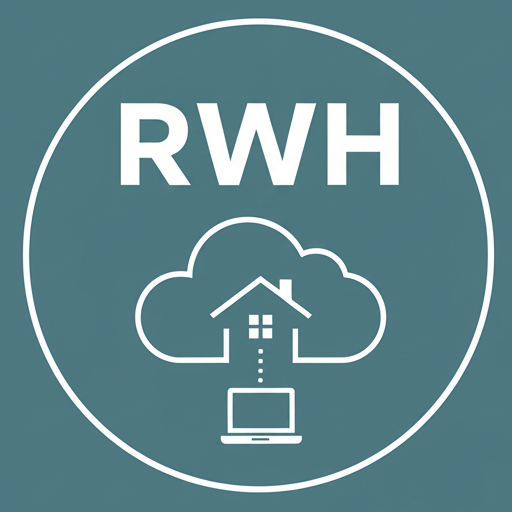
You think remote work gives you freedom, but be honest. Are you really free, or just trapped in a more comfortable prison?
At first, working from home felt like the dream. No commute, no office politics, no awkward small talk. You could work in your pajamas and take breaks whenever you wanted.
But now, you barely leave the house. You work strange hours, answering emails at midnight because your schedule is a mess. You eat meals at your desk, watching your social skills rot away like a forgotten houseplant.
The worst part? You’re not even unhappy enough to change.
You tell yourself you’re fine, but you’re not thriving. You’re surviving on the bare minimum, tricking yourself into thinking that because you don’t feel outright miserable, everything is okay.
How Remote Work is Silently Making You Weaker
The problem isn’t remote work itself. It’s that you’ve built your life around convenience instead of control.
- You roll out of bed five minutes before work because it’s easy.
- You order takeout instead of cooking because it saves time.
- You stay at your desk all day because it’s what you’re used to.
These habits don’t seem harmful at first, but over time, they chip away at your energy, motivation, and identity.
Why This Cycle is Dangerous
The human brain isn’t wired for endless convenience. Without structure, challenges, and real engagement, your mental and physical health decline. Here’s what happens when remote work traps you in autopilot mode.
- Your body weakens. Sitting all day, skipping workouts, and eating whatever is convenient drains your energy levels.
- Your motivation fades. When everything is easy, your drive to improve disappears.
- Your social skills decline. The less you engage, the harder real interactions become.
It doesn’t feel extreme at first, which is why so many people don’t notice until it’s too late.
The Hidden Psychological Toll of Remote Work
Most people assume that burnout only happens when you’re overworked, but that’s not entirely true. Remote work burnout often stems from something more subtle: monotony, isolation, and a lack of purpose.
- There is no separation between work and life. When your office is your home, it feels like you are always on.
- There is minimal variety in your daily experiences. You see the same walls, hear the same silence, and do the same tasks without much stimulation.
- You have no external motivation. When no one is around, accountability disappears, and motivation declines faster than you realize.
You might not feel stressed, but you do feel tired, unmotivated, and stuck. That is still burnout, just in a different form.
How to Break the Cycle Before It Breaks You
1. Make Yourself Uncomfortable on Purpose
Growth comes from discomfort. The easiest way to reset your mindset is to introduce small but intentional challenges.
- Wake up earlier than necessary. Stop rolling out of bed five minutes before work. Give yourself a real morning routine.
- Take cold showers. It forces your body and brain to adapt, making you more resilient.
- Work somewhere else. A coffee shop, a library, or even a different room in your house can break mental stagnation.
If your days feel repetitive and dull, it’s because you aren’t forcing change.
2. Stop Letting Remote Work Kill Your Social Life
Social isolation doesn’t hit all at once. It creeps in slowly until one day, you realize you haven’t had a real conversation in weeks.
- Schedule actual voice or video calls. Texting isn’t enough.
- Force yourself into social settings. It won’t feel natural at first, but it’s necessary.
- Leave the house at least once a week. Work from a public space, meet a friend, or just go outside.
You don’t have to be an extrovert, but you do need human interaction.
3. Stop Letting Remote Work Wreck Your Body
Physical neglect is one of the biggest silent killers in remote work. You don’t move as much, your posture suffers, and your energy levels drop.
- Set a movement rule. No sitting longer than an hour without standing up.
- Do something physically challenging. Your body was built for movement. Strength training, running, or even basic stretching makes a difference.
- Eat like you care about yourself. If your diet consists of takeout and snacks, you’re setting yourself up for long-term problems.
If you let remote work take over, your physical health will pay the price.
4. Stop Treating Remote Work Like an Excuse for Bad Habits
Just because you don’t have a boss watching over your shoulder doesn’t mean you should abandon all structure.
- If you wouldn’t do it in an office, don’t do it at home. No working in bed, no snacking all day, no answering emails at midnight.
- Set clear work boundaries. Just because your laptop is always there doesn’t mean you need to stay in work mode 24/7.
- Use space triggers. Work in one area, relax in another. Even small environmental changes help create separation.
5. Shift from Survival Mode to Growth Mode
Most remote workers exist in survival mode, doing the bare minimum to get through each day. The goal isn’t just to avoid burnout, but to create a work-life balance where you actually feel fulfilled.
Here’s how to make that shift.
- Adopt a learning mindset. Challenge yourself to improve a skill, not just finish tasks.
- Create “fake” pressure. Set deadlines, join accountability groups, and use time-blocking to stay engaged.
- Redefine success. Don’t just measure your day by productivity. Track how you feel at the end of it.
Remote work can be liberating or suffocating, depending on how you approach it.
The Hard Truth: It’s On You to Change
If you’re miserable in remote work, it’s not because of the job. It’s because you stopped making an effort.
The longer you stay in this cycle, the harder it becomes to break.
You can keep coasting through each day, watching time slip away, or you can wake up and take control before remote work turns you into someone you don’t recognize.
What’s one uncomfortable change you’re willing to make today? Drop it in the comments.
Related Articles:
- Morning Routines for Remote Work Productivity: Simple Habits for Success
- Gaming for Remote Workers: Boosting Productivity, Creativity, and Mental Health
- Breaking Free: How to Cope with Loneliness, Heartbreak, and Emotional Struggles as a Remote Worker
- The Productivity Power Hour: How 60 Minutes Can Transform Your Day
You can also start reading on wellness tips:
- Recharge and Revitalize: The Power of Recovery and Restorative Practices
- Practical Wellness Tips for Busy Professionals: Achieving Mind and Body Balance
Learn to fight back and change:

Pingback: Remote Work Broke You – And No, a New App Will Save You
Pingback: The Work-Life Operating System (WLOS): A Smarter Alternative to Balance